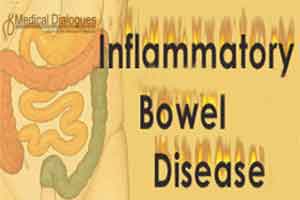- Home
- Editorial
- News
- Practice Guidelines
- Anesthesiology Guidelines
- Cancer Guidelines
- Cardiac Sciences Guidelines
- Critical Care Guidelines
- Dentistry Guidelines
- Dermatology Guidelines
- Diabetes and Endo Guidelines
- Diagnostics Guidelines
- ENT Guidelines
- Featured Practice Guidelines
- Gastroenterology Guidelines
- Geriatrics Guidelines
- Medicine Guidelines
- Nephrology Guidelines
- Neurosciences Guidelines
- Obs and Gynae Guidelines
- Ophthalmology Guidelines
- Orthopaedics Guidelines
- Paediatrics Guidelines
- Psychiatry Guidelines
- Pulmonology Guidelines
- Radiology Guidelines
- Surgery Guidelines
- Urology Guidelines
Protein can cut progression of both inflammatory bowel disease and colon cancer: Study

Washington : A new study finds that altering the shape of a protein can significantly reduce the progression of inflammatory bowel disease and colon cancer.
According to researchers, modifying the shape of IRAK-M, a protein that controls inflammation, can significantly reduce the clinical progression of both diseases in pre-clinical animal models.
The findings appeared in the eBioMedicine journal.
"When we tested mice with the altered IRAK-M protein, they had less inflammation overall and remarkably less cancer," said Coy Allen from the Virginia-Maryland College of Veterinary Medicine.
The next step, he said, will be to evaluate these findings in human patients through ongoing collaborations with Carilion Clinic and Duke University.
The altered protein causes the immune system to become supercharged, clearing out the bacteria before they can do any damage.
There is an intimate link between uncontrolled inflammation in the gut associated with inflammatory bowel disease and the eventual development of colon cancer.
"From a scientist's perspective, that's what it's all about, and hopefully our findings provide a good avenue for development of future therapeutics to treat maladies such as inflammatory bowel disease and colon cancer," the authors concluded.

Disclaimer: This site is primarily intended for healthcare professionals. Any content/information on this website does not replace the advice of medical and/or health professionals and should not be construed as medical/diagnostic advice/endorsement or prescription. Use of this site is subject to our terms of use, privacy policy, advertisement policy. © 2020 Minerva Medical Treatment Pvt Ltd